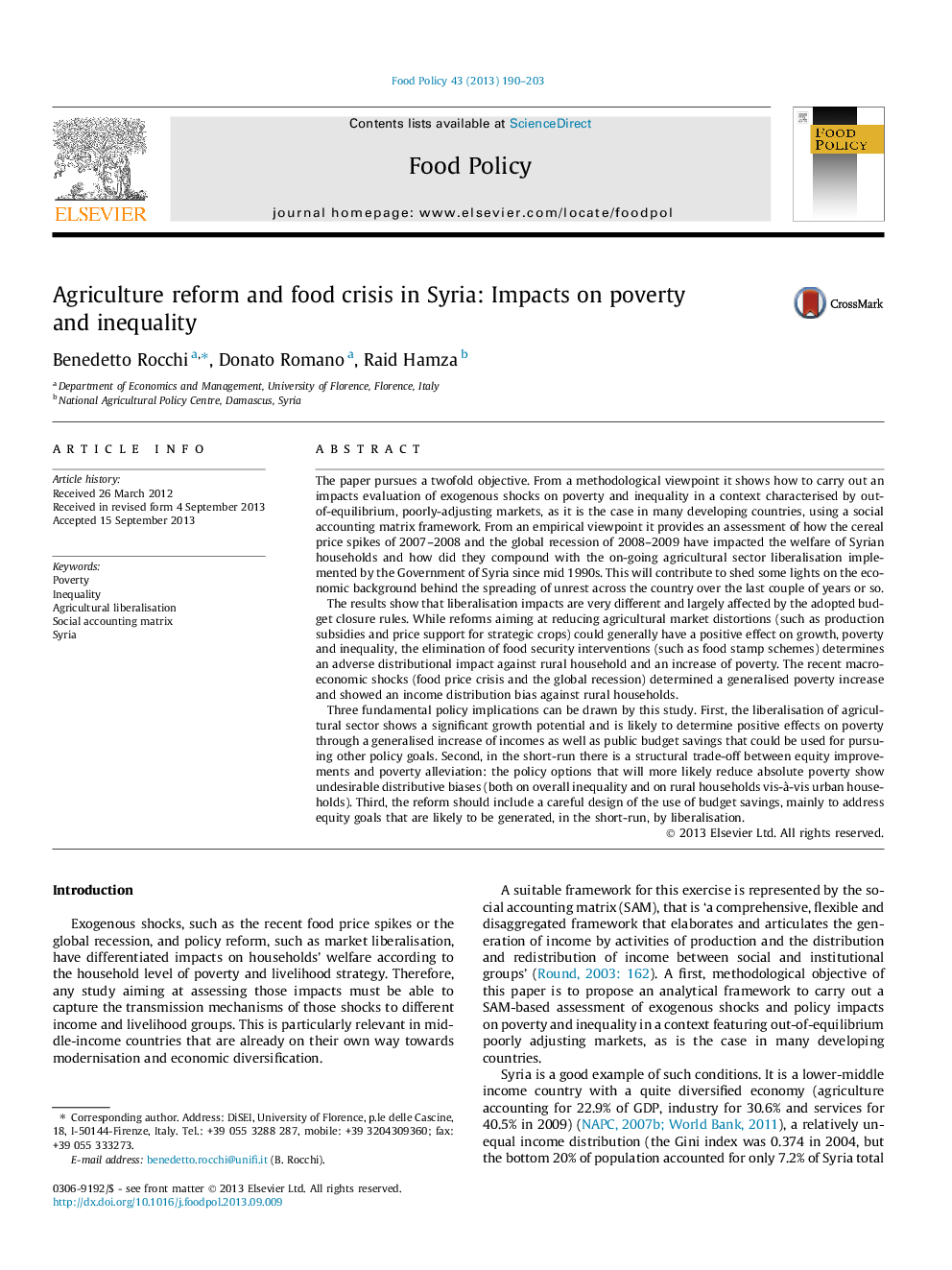| Article ID | Journal | Published Year | Pages | File Type |
|---|---|---|---|---|
| 5070601 | Food Policy | 2013 | 14 Pages |
Abstract
Three fundamental policy implications can be drawn by this study. First, the liberalisation of agricultural sector shows a significant growth potential and is likely to determine positive effects on poverty through a generalised increase of incomes as well as public budget savings that could be used for pursuing other policy goals. Second, in the short-run there is a structural trade-off between equity improvements and poverty alleviation: the policy options that will more likely reduce absolute poverty show undesirable distributive biases (both on overall inequality and on rural households vis-Ã -vis urban households). Third, the reform should include a careful design of the use of budget savings, mainly to address equity goals that are likely to be generated, in the short-run, by liberalisation.
Related Topics
Life Sciences
Agricultural and Biological Sciences
Food Science
Authors
Benedetto Rocchi, Donato Romano, Raid Hamza,
